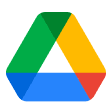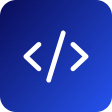
IonQ
Similar Companies Hiring
Building the world’s best quantum computers to solve the world’s most complex problems.
Quantum computers are a revolutionizing technology — they have the potential to transform business, society, and the planet for the better, and IonQ is at the forefront of this revolution.
After over 25 years of academic research, IonQ was founded in 2015 by Chris Monroe and Jungsang Kim with $2 million in seed funding from New Enterprise Associates, a license to core technology from the University of Maryland and Duke University, and the goal of taking trapped ion quantum computing out of the lab and into the market. In the following three years, we raised an additional $20 million from GV, Amazon Web Services, and NEA, and built two of the world’s most accurate quantum computers.
In 2019, we raised another $55 million in a round led by Samsung and Mubadala, and announced partnerships with Microsoft and Amazon Web Services to make our quantum computers available via the cloud.
In 2020 and 2021, we built additional generations of high performance quantum hardware, added Google Cloud Marketplace to our cloud partner roster and announced a series of collaborations and business partnerships with leading academic and commercial institutions.
On October 1st, 2021, IonQ began trading as IONQ on the New York Stock Exchange, making it the world's first public pure-play quantum computing company. We remain hard at work realizing the world-changing potential of quantum computing.
After over 25 years of academic research, IonQ was founded in 2015 by Chris Monroe and Jungsang Kim with $2 million in seed funding from New Enterprise Associates, a license to core technology from the University of Maryland and Duke University, and the goal of taking trapped ion quantum computing out of the lab and into the market. In the following three years, we raised an additional $20 million from GV, Amazon Web Services, and NEA, and built two of the world’s most accurate quantum computers.
In 2019, we raised another $55 million in a round led by Samsung and Mubadala, and announced partnerships with Microsoft and Amazon Web Services to make our quantum computers available via the cloud.
In 2020 and 2021, we built additional generations of high performance quantum hardware, added Google Cloud Marketplace to our cloud partner roster and announced a series of collaborations and business partnerships with leading academic and commercial institutions.
On October 1st, 2021, IonQ began trading as IONQ on the New York Stock Exchange, making it the world's first public pure-play quantum computing company. We remain hard at work realizing the world-changing potential of quantum computing.
IonQ Offices
Hybrid Workspace
Employees engage in a combination of remote and on-site work.
Our employees live across the globe, and are only expected to spend as much time on site as they need and/or want during the week. Nearly half of our employees are fully remote and live in several countries.
Typical time on-site:
Flexible
Toronto, Ontario, CAN








































